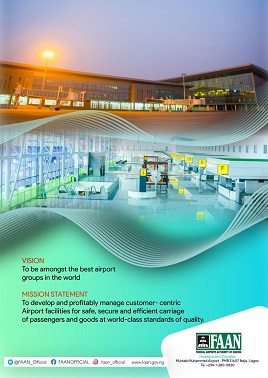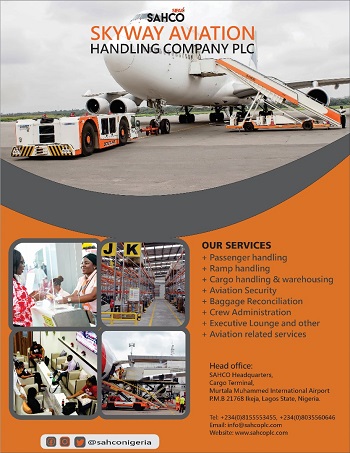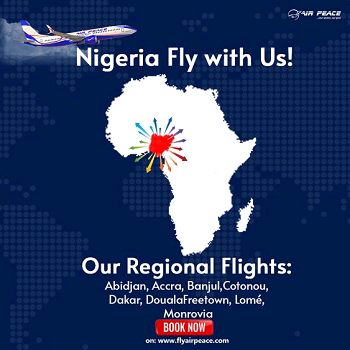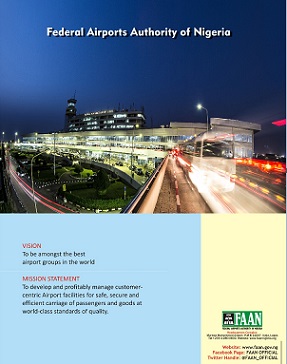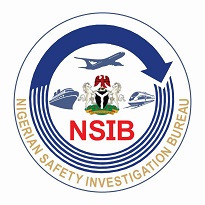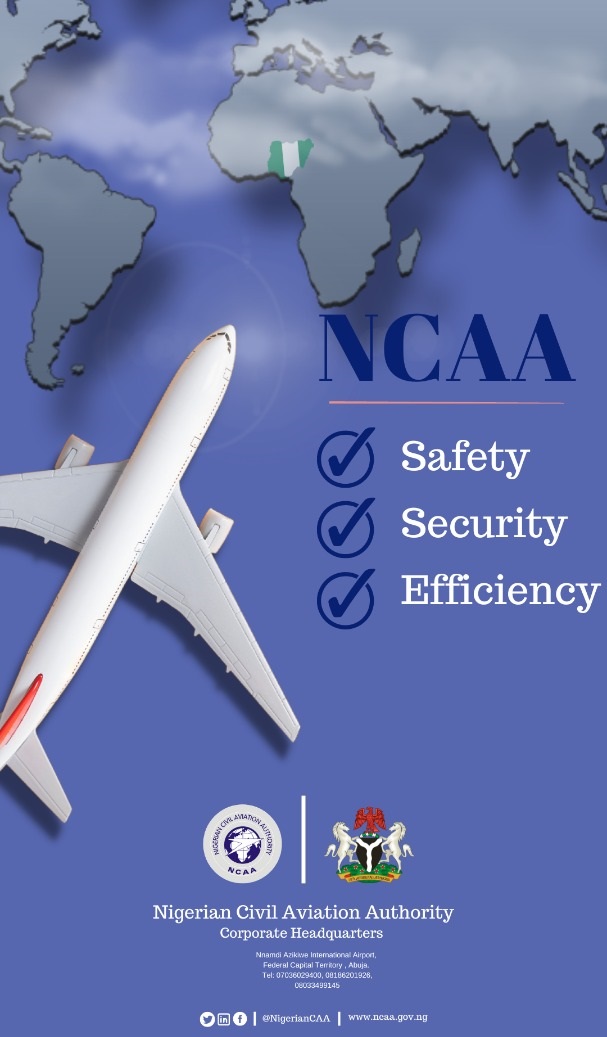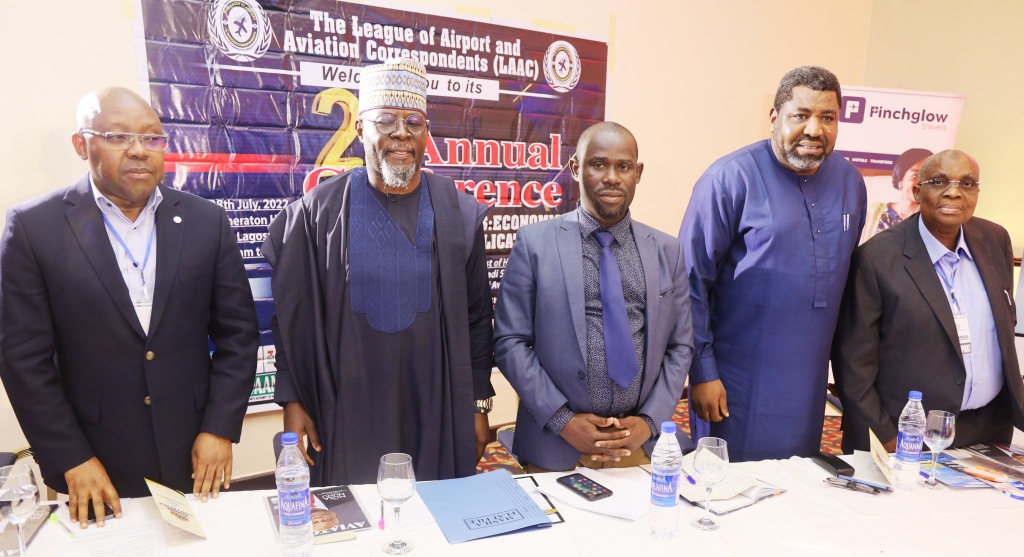
Uriesi; Chairman of the Occasion/Group Managing Director, Finchglow
Holdings, Mr. Bernard Bankole; Chairman, League of Airports and
Aviation Correspondents (LAAC), Mr. Olusegun Koiki; Key note
Speaker/Centre Director , Centre for International Advance and
Professional Studies (CIAPS), Prof. Anthony Kila; Managing
Director/CEO, Med-View Airlines, Alhaji Muneer Bankole, during the
26th Annual Conference of LAAC 2022 on Sunset Airport: Economic and
Safety Implications at Sheraton Hotel Ikeja Lagos on Thursday
Restrictions placed on airlines from operating 24 hour flight service to and from some airports across the country caused Nigerian airlines at least N4.3 billion annually.
Sunset airports are airports flights operations cannot take place after sunset and before sunris.
These were made known at the 26th annual Conference of League of Aviation and airport Correspondents (LAAC) held at Sheraton Hotels Ikeja Lagos on Thursday
Sunset airports are classified as airports where flight operations cannot take place after sunset and before sunrise.
In his paper presented at the 26th annual with the theme: Sunset Airports: Economic and Safety Implications,’ held in Lagos, Chief Operating Officer (COO), Ibom Air, Mr. George Uriesi, said that the lack of 24 hours flight operations to major routes in Nigeria was impeding the growth of dimestic airlines in the country.
He said, ‘Maximising Runway Utilisation: A Nigerian Airline Perspective,’ the country’s carriers are losing an average of N4 million per flight, N12 million in every flight, N360 million in 90 flights and N4.3 billion annually on every flight lost to sunset airport operations.
These restriction, Uriesi noted has led to a huge underutilisation of aircraft fleets by the Nigerian airlines as against the global industry standards.
He added: “This is due partly because of too many impediments in the operating environment that limit airline productivity.
“These include limited runway availability across the domestic network, multiple operational infrastructure deficiencies, poor organisation and many others.”
Proffering practicable solutions to the challenges, Uriesi appealed to the Federal and state governments to prioritise airfield infrastructure and provide the necessary Instrument Landing System (ILS) and accompanying accessories for every airport, while also keeping the aerodromes open to meet the needs of airlines and other users.
Besides, he advised that the government should make current, approved master plans a regulatory requirement for every airport and illegalize non-adherence to the master plans by any organisation.
“Establishing a local aircraft lessor /financing vehicle that would allow for the domiciling of aircraft payments in local currency would make a huge difference to the air transport sector in Nigeria,” he added.


